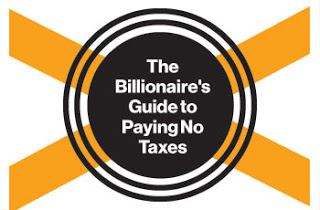What do Warren Buffet, Alan Greenspan, Barack Obama and my father, a life long Republican, have in common? Normally this is a group that would have little they could agree on politically or economically. However, they all agree that in order to balance the national budget, one thing: we mus raise the taxes on the wealthiest Americans. Now they might quibble about the percentages and what areas of the budget should be cut, but all agree that the tax rate must be progressive and that those who earn more should pay more literally and proportionately in taxes. And all of them would probably pay higher taxes if such a decision was made.
When you are facing trillions of dollars in debt, one doesn’t have to be a genius to know the way you close the gap is to cut expenses and raise revenue. So why are the Republicans in Congress and Republicans in statehouses across the country, including my own state of Pennsylvania, so adamant about not raising taxes on the wealthy and corporations while making major cuts in education, health care, and social services for the poor? Why can they insist that teachers and other public employees must pay more for their benefits –what they call “their fair share” – (essentially cutting their income by making them pay more for those benefits), but not ask those who earn over $250,000 a year to pay more – i.e. their fair share? Why can they propose to make the middle class and poor go without, and yet allow the gap between haves and have-nots get wider and wider?
The argument goes that the by holding down taxes on the wealthy, this will spur economic growth by encouraging the wealthy and corporations to create jobs. The evidence has not born that out. We are currently in the worst recession since the 1930’s and the banks and the corporations have been show to be corrupt and predatory in their practices toward the middle class and homeowners, and yet Republicans in Congress refuse to turn the screws on those who have lined their pockets with PAC and lobbyist money.
Nearly 20 years ago investigative reporters Donald Bartlett and James Steele predicted the vanishing of the middle class because of the two tier tax structure that allows the wealthy and corporations to pay far less than their fair share in taxes. They have revisited that study and their predictions proven to be true. Their study entitled What Went Wrong indicates that the corporate tax rate has declined from 49% in the 1950’s to 26% in 2010. But that doesn’t tell the whole story because after deductions, credits and other tax write-offs some of the largest corporations like GE and Exxon pay no U.S. taxes. This is not some liberal political rhetoric, but rather information reported on their corporate statements to the SEC. Which means that the “small businesses” the Republicans keep saying they are trying to protect are probably paying a lot more than 26% so the big boys and the wealthy can get a “free card.”
It does no good to cry “foul” or talk about ethics or equity in this situation. Change will not come about by appealing to values or discussing different worldviews. This is simply an issue of power – who has the power to call the shots. In Plato’s Republic Book I, Socrates encounters a young man named Thrasymachus whose idea of justice is that the wealthiest and most powerful men make the rules and whatever they say goes. In his mind that is justice. Thrasymachus is not concerned about being fair to the masses, he just wants to get in the seat of power so he can make the rules bend toward his self-interest. Socrates (unsuccessfully) tries to show him that such a short sighted approach will destroy the city of Athens. That doesn’t matter to Thrasymachus because all he cares about is building his little kingdom.
We used to think that such things only happened in despotic nations ruled by wealthy strongmen surrounded by military power. Rulers like Amin (Uganda), Duvalier (Haiti) and Marcos (Philippines) bankrupted their countries and oppressed their poor masses, even as they amassed obscenely high concentrations of wealth. Well, add the United States to that list, as our political leaders, at the behest of the wealthy and the corporations, head us down that path. Amin, Duvalier, and Marcos were all overthrown by people’s revolutions, in Amin’s case violently. We are heading toward a point where nothing less than a revolution will bring sanity back to the way we distribute the wealth in this country. As Bartlett and Steele point out right now a significant mass of Americans have bought the line that “taxes” is a dirty word like “communism,” and continue to support policies that are not in their best interest. However, we are moving to ward what educator Paulo Freire calls an “untested feasibility” of needing a dramatic revolution not of morals or worldview, but of power.
Do we really want to go there?




Well said, Drick.
Sherri